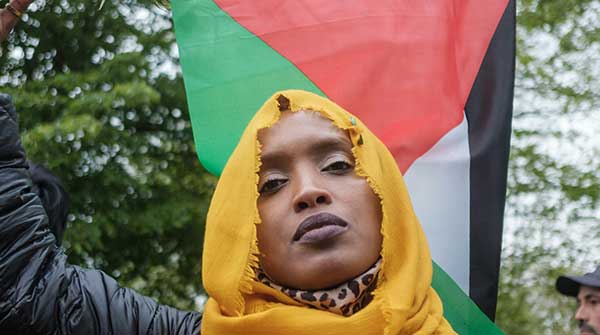Countries that cut UNRWA funding lack any ethical justification for their action, given their own historical records
“If I were an Arab leader, I would never sign an agreement with Israel. It is normal; we have taken their country. It is true God promised it to us, but how could that interest them? Our God is not theirs. There has been antisemitism, the Nazis, Hitler, Auschwitz, but was that their fault? They see but one thing: we have come and we have stolen their country. Why would they accept that?”
David Ben-Gurion, the first Israeli Prime Minister

The current assault on Gaza leaves many questions unanswered. In the above quote, David Ben-Gurion seems to recognize that antisemitism is not a Palestinian phenomenon. Jewish Arabs, Christian Arabs, and Muslim Arabs had always lived in a relatively peaceful coexistence until the British became involved in the region.
We also forget that throughout the centuries of European antisemitism and ethnic cleansing, European Jews found refuge throughout the Ottoman Empire and had been thriving for centuries before the birth of modern Israel.
Something interesting happened almost immediately after the International Court of Justice ruled that there is reason to believe that Israel is committing genocide in Gaza. Instead of demanding that Israel cease hostilities, many countries decided not only to continue sending military supplies to Israel but to cut funding to the United Nations Relief and Works Agency for Palestine Refugees in the Near East (UNRWA) after mere allegations that some of its workers had been involved in attacks on Israelis. This is devastating news for starving Palestinian civilians.
What is the history of the prominent countries that cut funding to UNRWA? And by what moral authority do they speak?
Germany is the country that most often comes to mind when we hear the word antisemitism, and rightly so. The Nazis murdered six million Jewish citizens of Europe. Antisemitism did not begin or end there, however. It was a prominent mindset for centuries, and it continued after the Second World War when Nazi war criminals blended back into Western society and surviving Jews moved to Israel and elsewhere. Germany also has a largely forgotten history in Africa, where they were arguably the cruellest of Europe’s colonizers, along with an admitted complicity in the Armenian Genocide.
Great Britain was well aware of the rise of antisemitism in Nazi Germany and seemed to have no problem with it. Rather than welcoming Jewish refugees (except for a few children), they settled them elsewhere, anywhere but Great Britain, primarily in Palestine. The British government is also largely responsible for the transatlantic slave trade, as well as numerous genocides during its colonial era and even after.
The United States has a history of antisemitism very similar to that of Great Britain. It is founded on the genocide of Indigenous peoples as well as enthusiastic participation in the slave trade. American colonialism, though shorter in duration than that of Great Britain, was no less cruel, and except for those committed by China and the Soviet Union, it is difficult to find a genocide since 1945 where the Americans were not active participants or at least complicit.
In Canada, the attitude toward Jewish refugees fleeing the terror of the Nazis was “None is too many.” Canada has an often-overlooked history of participation in the slave trade, and one has to doubt the sincerity of government efforts to reconcile the genocide toward our Indigenous population when we see the number of communities that do not have safe drinking water and the number of children not getting the medical and educational services they need.
Yet, these are the same countries that claim to be fighting antisemitism by fueling a military assault and cutting aid to a starving and decimated population that has a history of being kinder to their Jewish neighbours than any of these self-proclaimed standard bearers of the rule of law.
It is a strange perspective on morality. One needs to question how long it can endure.
Gerry Chidiac specializes in languages and genocide studies and works with at-risk students. He is the recipient of an award from the Vancouver Holocaust Education Centre for excellence in teaching about the Holocaust.
For interview requests, click here.
The opinions expressed by our columnists and contributors are theirs alone and do not inherently or expressly reflect the views of our publication.
© Troy Media
Troy Media is an editorial content provider to media outlets and its own hosted community news outlets across Canada.

